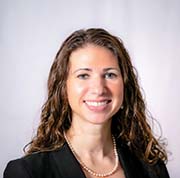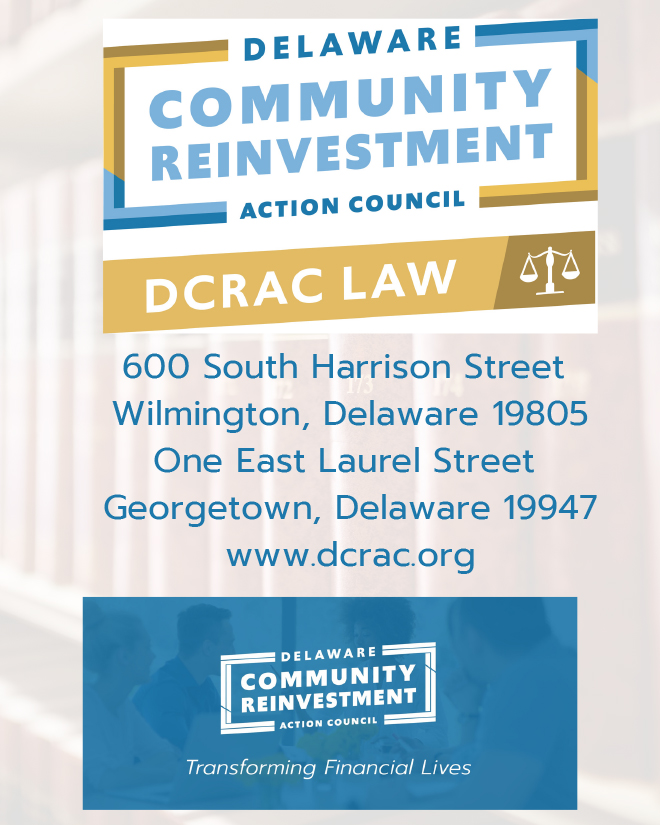Ensure A Smooth Transfer: Avoiding Probate

By Jaclyn Quinn, Esq.
Delaware Community Reinvestment Action Council, Inc.
If you’ve read any of my previous articles, you know that I highly recommend estate planning to everyone. If you’re new to this publication, then the moral of the story is simple: Now is the time to complete your estate planning, and more!
After a loved one dies, sorting through, resolving, and distributing their assets can take more than a year—a too-often-thorny process called “probate.” Most aspects of probate are a matter of public record, meaning privacy is lost when it comes to the types and values of assets—and the fees, filing requirements, and emotional weight of eventually distributing the assets among beneficiaries or heirs can be daunting.
Probate of assets is common, but it is avoidable, and that’s often a goal of estate planning. This legal forethought ensures a smooth, timely transfer of assets for beneficiaries and executors, as well as maintains privacy and minimizes unnecessary costs.
By planning ahead now, you can avoid putting both your assets and your loved ones through the probate process—and make sure your last wishes are easily followed.
Designate a beneficiary on all accounts
When you opened a life insurance policy or brokerage account, did you use the beneficiary designation? If not, get that information up to date! Simply naming recipients of your assets like this excludes that asset from the probate process, allowing the company holding the funds to distribute them directly to the individual or individuals you named. While this can also happen by their filing paperwork and a death certificate, designating a beneficiary enables much faster transfer than having the asset pass through a will does. Transfer on Death (TOD) or Payable on Death (POD) are also helpful designations, if offered, to ensure an even quicker transfer of accounts.
Plan how to transfer real property
In most circumstances, real estate can transfer as non-probate property—but there are also plenty of cases wherein property must be sold to satisfy “debts of the estate.” That is, the deceased’s outstanding debts must be paid by their remaining assets, like the proceeds of the sale of real estate. If this is a concern, placing real property in a revocable trust is one way to engineer a seamless transfer to successor beneficiaries. In some limited circumstances, adding a loved one to the property deed is another way to ensure the property transfers directly, outside of probate.
Consider gifting special items now
Valuable possessions—like jewelry, art, or vintage collections—also count as assets. And just like bank accounts and real estate, their value is thus subject to probate. We typically recommend that clients try to personally gift these valuables soon, during their lifetimes, which ensures they end up in the right hands right away, without needing to go through the probate process. Of course, there are nuances to how this works, and some cases require different approaches, but making gifts that remove the items from probate can often solve a problem before it starts.
Some final thoughts
Probate is not in itself a “bad” thing—it’s simply a legal process to ensure that property and assets are distributed according to the law. However, because it can demand time and expense, and because it allows creditors to collect payment from the assets of the estate if needed, the best way to protect your assets and loved ones is to plan now—and transfer them easily and cost-effectively later.
If you need legal advice, Jaclyn Quinn is licensed to practice law in Delaware and she and her colleagues at the Delaware Community Reinvestment Action Council are available to assist. For more information, or to schedule a consultation, please call (302) 298-3251, email Jaclyn at [email protected] or visit www.dcrac.org.
Bio
Jaclyn Quinn, Esq. joined the Delaware Community Reinvestment Action Council (DCRAC) in 2011, first as a volunteer, then as staff. In 2014 Jaclyn opened and grew her private practice until 2019, when DCRAC Law opened to the community. DCRAC Law is a nonprofit law firm providing tax, title, and other legal services to those unable to pay market rates.
Jaclyn graduated with a B.A. in Political Science from The College of New Jersey before moving to Delaware to pursue her J.D. at Widener University- Delaware Law School. She was admitted to the Delaware Bar in 2012, and is also barred in U.S. Tax Court and U.S. Immigration Court. She has volunteered with the Office of the Child Advocate, DVLS, and assists as pro bono counsel in a variety of cases. Jaclyn is a member of the Howard High School Academy of Finance Advisory Board.


